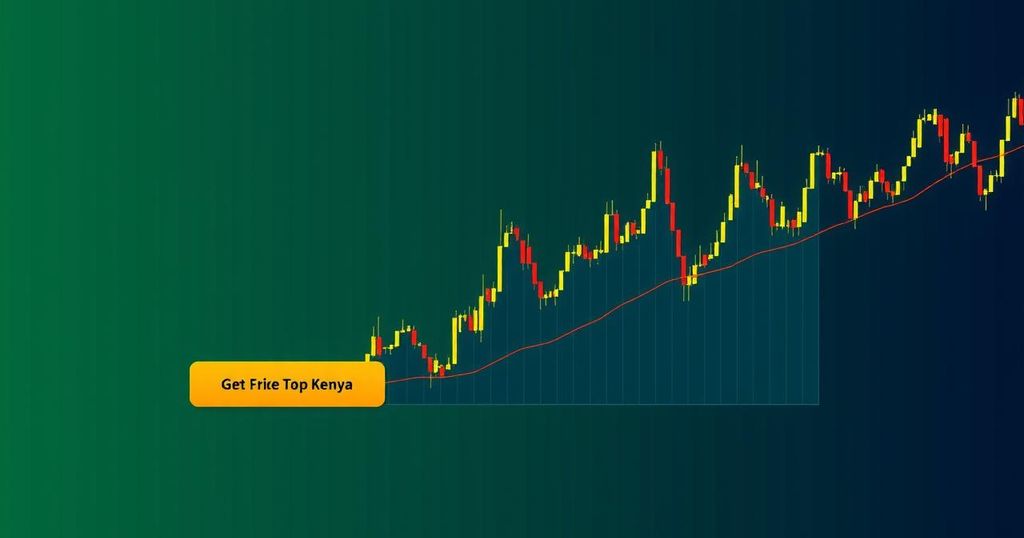Navigating Forex Trading in Kenya: Essential Insights and Guidelines
Forex trading in Kenya is fully legal and regulated by the CMA and CBK. Selecting CMA-licensed brokers like EGM Securities, Scope Markets, or even internationally recognized ones such as Pepperstone is essential for secure trading. Forex traders are also required to pay taxes on their earnings, influencing their overall profitability. Comprehensive understanding of the market and tax compliance are critical steps before engaging in forex trades.
Forex trading has gained significant traction in Kenya, appealing to a diverse range of traders, from novices to experienced investors. Navigating this market necessitates a solid understanding of the legal framework, appropriate broker selection, and awareness of tax responsibilities. This article elucidates these crucial aspects to empower traders to make informed choices regarding their forex trading endeavors.
Firstly, it is important to acknowledge the legality of forex trading in Kenya. The Central Bank of Kenya (CBK) oversees the financial sector, while the Capital Markets Authority (CMA) governs forex trading operations. The CMA mandates strict regulations for brokers to protect traders from potential fraud and financial misconduct. Therefore, employing a CMA-licensed broker is highly advisable to ensure compliance with regulatory standards and increased protection compared to unlicensed offshore alternatives.
When considering the best forex brokers in Kenya, several CMA-licensed options stand out:
1. EGM Securities (FXPesa) – Licensed by the CMA, it provides noteworthy features such as the MetaTrader 4 (MT4) platform, low minimum deposits, and flexible leverage, making it ideal for beginners and intermediate traders.
2. Scope Markets – Also CMA-licensed, it offers advanced trading tools, tight spreads, and comprehensive educational resources, appealing to those seeking professional-grade tools.
3. Pepperstone – While not CMA-licensed, this international broker operates under esteemed regulators like FCA and ASIC, providing low spreads and diverse platforms (MT4, MT5, and cTrader) for advanced traders.
4. HotForex (HFM) – Licensed by various international bodies but not the CMA, it offers flexible account options, high leverage, and a range of tradable assets.
Selecting the right broker involves careful consideration of factors including regulation, trading platforms, fees, customer support, and educational resources.
In terms of taxation, forex traders in Kenya are mandated to pay taxes on their profits. Kenyan law classifies forex trading income as taxable, falling under the jurisdiction of the Kenya Revenue Authority (KRA). Profits are subject to individual income tax rates ranging from 10% to 30%, depending on income brackets. Furthermore, forex traders are required to file annual tax returns with the KRA. It is paramount to maintain precise records of trading activities, encompassing profits, losses, and withdrawal statements to ensure tax compliance and avoid legal penalties.
To initiate forex trading in Kenya, individuals should first understand the market by leveraging online resources, courses, and demo accounts. Next, selecting a CMA-licensed broker is crucial for transparency and security. After registration and identity verification, traders should fund their accounts and practice on a demo account to become acclimatized to the trading platform and develop strategies before trading with real funds. Importantly, employing risk management measures, such as stop-loss and take-profit orders, is essential to mitigate potential losses during trading.
In conclusion, forex trading in Kenya presents lucrative opportunities for those who engage with prudence and awareness. Opting for a CMA-regulated broker is vital for protecting investments, alongside ensuring adherence to tax obligations to avert legal complications. With the right broker and an effective trading strategy, forex trading can evolve into a fulfilling venture for Kenyan traders.
This article delves into the forex trading landscape in Kenya, addressing important considerations such as legality, broker selection, and tax responsibilities that traders must navigate. Forex trading has surged in popularity within Kenya, creating a need for comprehensive guidance to assist both novice and experienced traders in making informed decisions. The regulatory framework established by the Central Bank of Kenya and the Capital Markets Authority plays a pivotal role in safeguarding traders’ interests. As traders seek suitable brokers, understanding their legal obligations regarding taxation and compliance becomes increasingly essential.
In summary, embarking on a forex trading journey in Kenya requires careful navigation of regulatory guidelines, strategic broker selection, and adherence to tax obligations. By opting for CMA-licensed brokers, traders can enhance their trading security and protect their interests. Furthermore, understanding the tax implications associated with trading profits is critical to maintaining compliance and avoiding legal issues. With thorough preparation and the right approach, forex trading can be an enriching experience for Kenyan investors.
Original Source: theafricalogistics.com




Post Comment